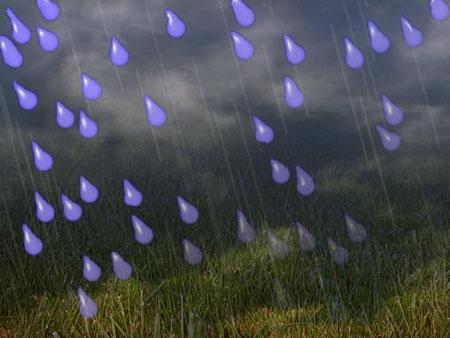You are here
‘Jordan to conduct rainmaking experiment in 2016’
By Mohammad Ghazal - Nov 29,2015 - Last updated at Nov 29,2015
AMMAN — Jordan is scheduled to conduct an experiment in cooperation with Thai experts to make artificial rain in the vicinity of King Talal Dam in early 2016 as part of efforts to increase precipitation in the Kingdom, according to Mohammad Samawi, director general of the Jordan Meteorological Department (JMD).
The experiment will be conducted in partnership with the Royal Jordanian Air Force.
The JMD has already floated tenders to purchase the necessary chemicals for the rainmaking experiment, Samawi told The Jordan Times on Sunday, noting that it has allocated the necessary funds to purchase the required equipment.
Jordan, one of the world’s water-poorest countries, will benefit from Thai technology in rainmaking to boost the dam’s storage levels and increase water channelled to crops in the Jordan Valley, he said.
“Thailand has a long and solid experience in rainmaking and there is top official support from the country to the project in the Kingdom,” Samawi added.
Jordan tried making artificial rain on its own between 1989 and 1995, but the experiment failed as the airplane and equipment used for this purpose stopped functioning and the project faced several challenges.
The Thai technology was developed in 1969 by King Bhumibol Adulyadej of Thailand who holds an international patent on the rainmaking method, which involves introducing certain chemicals in cloudy areas to “seed” the clouds with increased moisture that would eventually result in precipitation.
In 2009, Jordan received permission from Thailand to use the technique.
According to official figures, 91 per cent of the Kingdom’s total area of 97,000 square kilometres is arid land with an annual average rainfall of 50-200 millimetres (mm), while 2.9 per cent is categorised as semi-arid with an annual average rainfall of 400-580mm.
Water per capita in the Kingdom is 88 per cent below the international water poverty line of 1,000 cubic metres annually, according to the Ministry of Water and Irrigation.
The available water resources in Jordan offer 800-900 million cubic metres of water annually, according to the Water Ministry, which says that this amount caters to the needs of only 3 million people.
Related Articles
Jordan will use Thai technology to make artificial rain in 2015 to increase precipitation in the Kingdom, which is the world’s second water-poorest country, according to Mohammad Samawi, director general of the Jordan Meteorological Department.
AMMAN — Jordan's first experiment in artificial rainmaking is scheduled to take place during spring in the Jordan Valley over the catchment
AMMAN — The results of Sunday's rainmaking experiment are encouraging, and plans are in place for more experiments in the future, Jordan Met

















